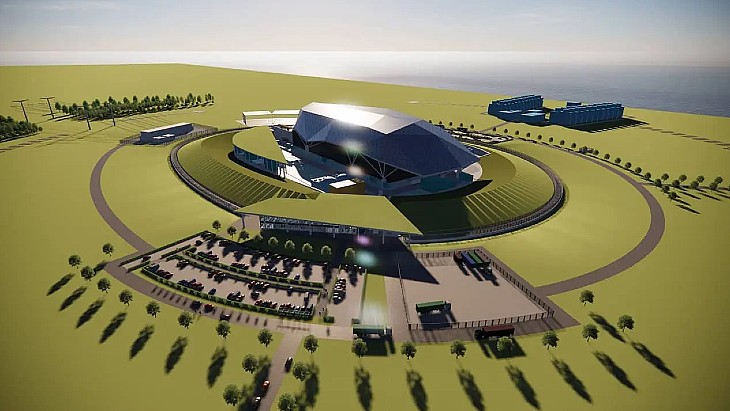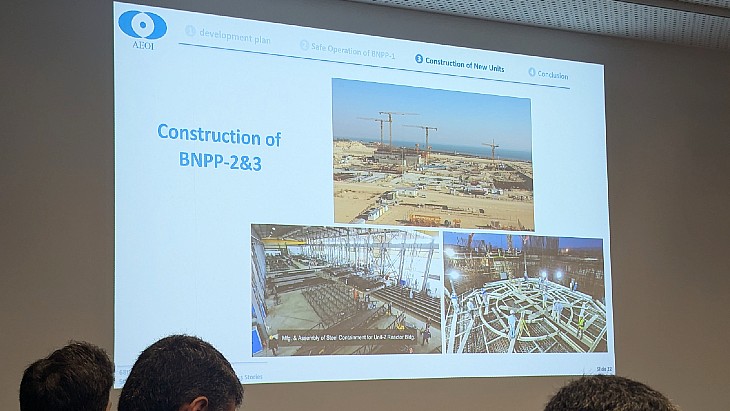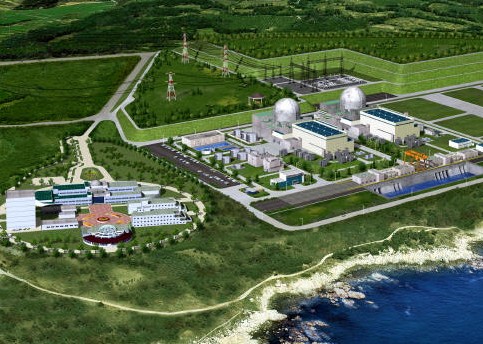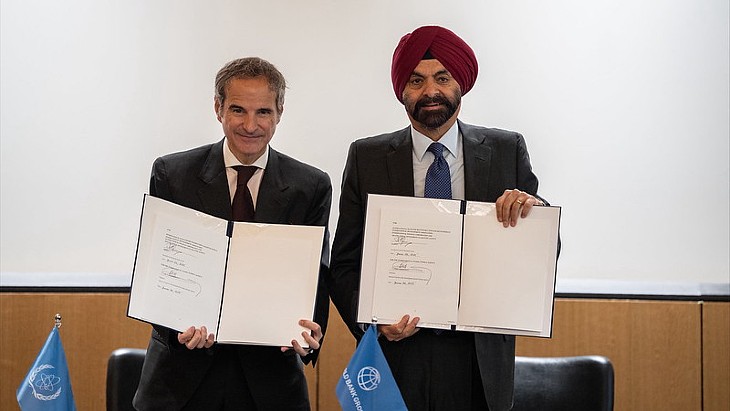UAE picks Korea as nuclear partner
South Korean firms are to lead the construction of nuclear power plants in the UAE, after the nation concluded its long-awaited nuclear tender. Four APR1400s are to be built by 2020 at a cost of $20 billion.
South Korean firms are to lead the construction of nuclear power plants in the United Arab Emirates (UAE), after the nation concluded its long-awaited nuclear tender.
Four South Korean-developed APR1400 reactors are to be built in a $20 billion order, with Korea Electric Power Company (Kepco) providing the "full scope of works and services". An array of South Korean firms are to take up roles in supply and technical support, notably Korea Hydro and Nuclear Power (KHNP) which will assist in operating the new reactors.
This will be "a partnership that endures for 100 years," said Khaldoon Al Mubarak, chairman of the Emirates Nuclear Energy Corporation (Enec), describing a South Korean consortium as the best fit for the UAE's nuclear power ambitions.
APR1400 The APR1400 is an evolutionary Generation III pressurized water reactor with its origins in the CE System 80+ model. It offers enhanced seismic safety to withstand 300 Gal ground acceleration, and has a 60-year design life. Principally designed by Korea Engineering Company (Kopec), it produces 1400 MWe. Construction times are expected to be 48 months, slightly shorter than the 51 months required for the first two, Shin-Kori 3 and 4, which serve as reference models for the UAE fleet. Doosan is the main manufacturer. |
The first of the 1400 MWe reactors is to come on line in 2017, with the others following by 2020. No sites have yet been selected, but the Emirates Nuclear Energy Corporation (Enec) is "currently in the advanced stages of evaluating a number of potential sites for nuclear power plants throughout all regions of the UAE."
Beyond that, "it is expected that additional units beyond the original four will be procured... as the UAE expands its fleet of civil nuclear power plants." Domestic electricity demand is expected to grow from under 16 GWe now to 40 GWe by 2020. in 2008 the UAE concluded that it would be impossible to meeting demand growth with gas, while using coal or oil would be environmentally unacceptable. Renewables were seen as capable of meeting a few percent of need at most.
Enec's announcement, made through the official WAM news agency, said the contract contains provisions that lower risk to the project and allow the UAE to model its nuclear industry on that developed by South Korea. Faced with limited resources and fast growing demand for energy, South Korea imported Westinghouse System-80 pressurized water reactors in the late 1970s. The contract included terms that allowed Kepco to develop its own versions of the PWR - such as APR1400. Now, South Korea has a full nuclear design, manufacture and construction capability backed up by extensive skill resources. Nuclear power should provide 55% of South Korean electricity by 2020.
The consortium
Kepco will take on the full scope of works and services including engineering, procurement, construction, nuclear fuel and operations and maintenance support. It will be assisted by its own subsidiaries and the other consortium members: Samsung, Hyundai, Doosan Heavy Industries.
Korea Hydro and Nuclear Power (KHNP), which will play a key role as the engineering, procurement and construction contractor and operator. Korea Power Engineering (Kopec) will provide the nuclear power plant design. Korea Nuclear Fuel (KNF) will provide the nuclear fuel, while Korea Plant Service and Engineering Co., Ltd. (KPS) will be involved in plant maintenance.
Non-Korean companies involved in the Kepco team include Westinghouse of the USA and its owner, Toshiba of Japan.
Enec noted that it continues to engage with other companies regarding potential cooperation in areas outside this prime contract, such as long-term fuel supply, joint investments, training and education.
_92619.jpg)


_84504.jpg)






..._58412.jpg)

